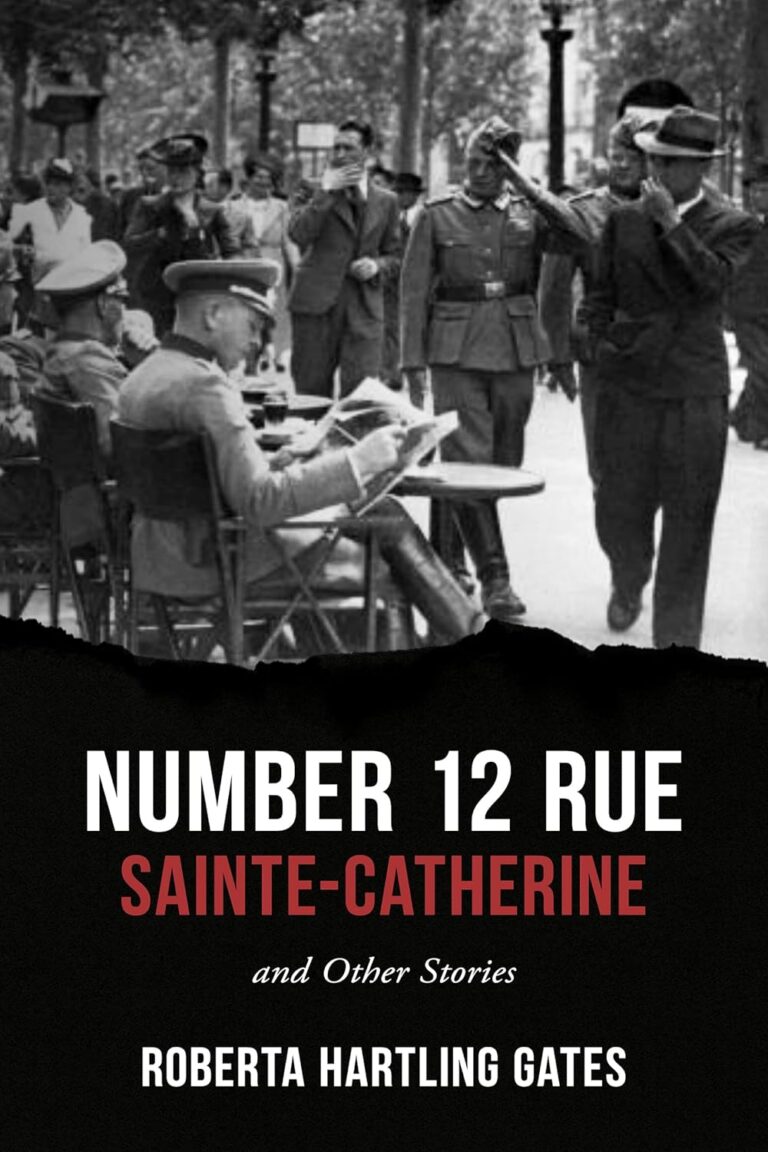
Number 12 Rue Sainte-Catherine and Other Stories received a 4+ star review, making it an IndieReader Approved title.
Following find an interview with author Roberta Hartling Gates.
What is the name of the book and when was it published?
Number 12 Rue Sainte-Catherine and Other Stories is the name of the book, and it will be published on September 9, 2024 by Running Wild Press.
What’s the book’s first line?
Klaus was cursed with a father who was was omnipresent.
What’s the book about? Give us the “pitch”.
Number 12 Rue Sainte-Catherine and Other Stories is a collection of stories focusing on Klaus Barbie, a mid-level Gestapo agent whose particular brand of charismatic evil allowed him to rule Lyon, France like a medieval tyrant. Yet this was only one chapter of his life. What prepared him for his role as the “Butcher of Lyon,” as he was known, and what became of him after the end of World War II? In an attempt to answer these and other questions, Number 12 presents Barbie in a variety of guises, from that of a vulnerable young boy, to a preening young man on the make, to an enfeebled septuagenarian forced to confront his crimes forty years after the fact.
What inspired you to write the book? A particular person? An event?
I didn’t actually set out to write Barbie’s story, but then I went to Lyon, France and visited the Resistance and Deportation History Center, which happens to be housed in the exact same building that Barbie used as his headquarters. And this is where I saw a long-running video of Barbie’s trial which included the testimony of Jews who’d survived a raid which he’d carried out at Number 12 rue Sainte-Catherine in Old Lyon. I was so fascinated by the stories of these survivors that I ended up writing a fifty-page novella about them, which in turn became the heart of my book.
What’s the main reason someone should really read this book?
Klaus Barbie was a notorious war criminal sentenced to life imprisonment for crimes against humanity. Yet he was also a son, a husband, a father and a grandfather who seemingly loved his family as much as the next guy. And in Bolivia, where he lived after the war, he ran a business and met with friends nearly every day at the local café. All of this was encompassed within the same person, but how could this be? Yet “evil” isn’t as extraordinary as we imagine. It’s rooted in the pettiness and resentments which lie dormant in all of us, waiting to be awakened and amplified by some big historical event like war. Of course not everyone succumbs. Barbie, because he came from an abusive home and carried the stigma of being a bastard, was probably more susceptible than most. But the real question is, how would any of us react under extreme circumstances? Unless we’ve been tested, we don’t really know.
What’s the most distinctive thing about the main character? Who-real or fictional-would you say the character reminds you of?
Klaus Barbie was a real-life person, of course, and I worked hard to be as factually accurate as possible. But the historical record couldn’t tell me what Barbie thought or felt, so, when I needed a “stand-in,” I found myself thinking of Ralph Fiennes’ complex portrayal of Amon Goth in the movie Schindler’s List. Goth was self-aggrandizing and brutal, but Fiennes’ performance allowed glimpses of the insecurity, self-hatred and panic that lay just below the surface.
